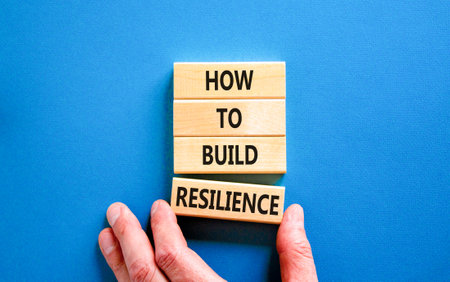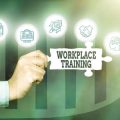Understanding Resilience in the American Workplace
Resilience isn’t just a buzzword in today’s professional landscape—it’s a core mindset and skill that fuels long-term career success across the United States. In America’s fast-paced, ever-evolving work environments, resilience means more than simply “bouncing back” from setbacks. It’s about adapting to constant change, learning from challenges, and staying motivated even when the road gets tough. The American workplace is unique for its relentless drive for innovation, rapid technological advancements, and an entrepreneurial spirit that often embraces risk and uncertainty. For professionals striving for longevity in their careers, understanding what resilience truly means—and why it matters—is the first step toward thriving amid these demands. When you cultivate resilience, you’re not only better equipped to handle stress and setbacks; you also gain the confidence and adaptability needed to seize new opportunities and grow stronger with every experience. By embracing resilience as a way of thinking and living at work, you position yourself to turn obstacles into stepping stones—ensuring your career can flourish no matter how the professional landscape shifts.
2. Mindset Shifts for Long-Term Career Success
Building resilience isn’t just about toughing it out when times get hard—it’s about adopting a mindset that thrives on growth and persistence, especially within the unique landscape of American work culture. To achieve career longevity, professionals must be willing to adjust their thinking and habits, embracing both challenges and opportunities with an open, proactive attitude.
The Growth Mindset Advantage
A growth mindset means believing your skills can improve with effort, feedback, and learning from mistakes. In the ever-evolving American workplace, this attitude sets you apart. Instead of fearing change or setbacks, you see them as stepping stones. For example, if you miss out on a promotion, use it as fuel to upskill and seek feedback rather than viewing it as a dead end.
Grit: The Power of Perseverance
Grit is the passion and perseverance needed to achieve long-term goals. American professionals who cultivate grit keep moving forward, even when faced with rejection or failure. This quality is often the secret ingredient behind breakthrough careers—think of entrepreneurs like Oprah Winfrey or Elon Musk, whose journeys are filled with both setbacks and comebacks.
Mindset Adjustments: From Fixed to Flexible
| Fixed Mindset | Growth/Grit Mindset |
|---|---|
| “I failed—Im not good at this.” | “I failed—what can I learn from this?” |
| “This challenge is too big for me.” | “This challenge will help me grow.” |
| “Feedback means Im inadequate.” | “Feedback helps me improve.” |
| “Success should come easily.” | “Success takes sustained effort.” |
Sustaining Motivation Through Highs and Lows
The journey to career longevity in America is rarely smooth. There will be highs—like promotions or new opportunities—and lows—like layoffs or missed targets. To stay resilient, regularly remind yourself why you started your career path in the first place. Connect your daily work to bigger personal or community goals. Celebrate small wins and reflect on how far you’ve come after each setback. With these powerful mindset shifts rooted in growth and grit, you’ll not only endure the ups and downs—you’ll thrive through them.

3. Practical Tools for Stress Management and Work-Life Balance
In the fast-paced landscape of American workplaces, resilience isn’t just about bouncing back—it’s about staying strong in the face of daily challenges. To cultivate long-term career success, professionals across the U.S. rely on actionable strategies to build emotional stamina, maintain energy, and strike a healthy work-life balance.
Mindful Micro-Breaks Throughout the Day
Americans are embracing mindful micro-breaks—short pauses that help reset mental clarity and recharge energy. Whether it’s a five-minute walk outside, deep-breathing exercises at your desk, or quick stretches between meetings, these simple habits can lower stress hormones and enhance focus. Integrating these moments into your daily routine helps you return to tasks with renewed perspective and vitality.
Setting Healthy Boundaries
One key resilience tool is learning to set—and honor—personal boundaries. Successful professionals don’t hesitate to say “no” when workloads threaten their well-being or family time. They communicate availability clearly and carve out non-negotiable personal hours, whether for dinner with loved ones or weekend hobbies. This practice protects mental health and reinforces a sustainable pace for career longevity.
Leveraging Social Support Networks
Building emotional stamina often means leaning on trusted colleagues, mentors, or support groups. In American work culture, sharing challenges and successes with others creates a sense of belonging and perspective. Don’t hesitate to reach out for advice or encouragement—sometimes a quick coffee chat or group brainstorming session can provide the boost needed to tackle tough days.
Prioritizing Self-Care Routines
Resilient professionals prioritize self-care as part of their routine—not as an afterthought. Regular exercise, healthy meals, quality sleep, and digital detoxes are seen not only as wellness trends but as essential tools for sustaining high performance over years. By investing in their own well-being, American professionals ensure they have the capacity to meet both career demands and personal aspirations.
By integrating these practical tools into your daily life, you’ll be better equipped to navigate workplace stressors with confidence and maintain the balance that fuels long-term career growth in America’s dynamic professional environment.
4. Leveraging Social Support and Networks
In the journey toward career longevity, the strength of your social support system can make all the difference. American professionals thrive when they tap into the collective wisdom and encouragement found in mentorships, peer networks, and diverse communities—both offline and online. Let’s explore how leveraging these connections can fuel resilience and empower you to navigate workplace challenges with confidence.
The Power of Mentorship
Mentorship is a cornerstone of professional growth in the U.S. culture, where experienced guides help emerging leaders learn from real-world successes and failures. A mentor offers not only advice but also an empathetic ear, helping you process setbacks and strategize for future opportunities. Consider actively seeking out mentors within your organization or industry associations who align with your values and goals.
Building Robust Peer Networks
Peer networks are invaluable for sharing resources, exchanging feedback, and celebrating wins together. Whether it’s through professional organizations, alumni groups, or coworking communities, engaging with peers provides a sense of belonging that buffers against stress and burnout. The table below highlights key benefits of different support avenues:
| Support Type | Benefits for Resilience | How to Access |
|---|---|---|
| Mentorship | Guidance, perspective, emotional support | Company programs, industry events, LinkedIn |
| Peer Networks | Shared learning, collaboration, accountability | Professional groups, alumni networks, meetups |
| Community Groups | Diverse perspectives, encouragement, advocacy | Local nonprofits, affinity groups, online forums |
Tapping Into Community—Onsite and Online
The digital age has expanded what “community” means for American professionals. Virtual masterminds on platforms like Slack or Discord break down geographic barriers and foster ongoing dialogue. At the same time, in-person gatherings—like networking breakfasts or volunteer initiatives—build trust and camaraderie that digital spaces sometimes lack. By balancing both worlds, you create a resilient safety net that adapts as your career evolves.
Cultivating Your Support System Intentionally
Don’t wait for support to find you; take proactive steps to nurture your network. Reach out to colleagues for coffee chats, join webinars or workshops relevant to your field, and give back by mentoring others. Remember: genuine relationships are built on authenticity and reciprocity. Investing in social capital today pays dividends in resilience tomorrow.
5. Failing Forward: Learning from Setbacks
In the American professional landscape, failure is not seen as a dead end, but rather as an essential part of the journey toward success. This mindset—often described as “failing forward”—is deeply rooted in American culture and entrepreneurship. Instead of hiding mistakes or setbacks, many U.S. professionals openly share their stories of trial and error, embracing vulnerability as a pathway to growth. This perspective transforms moments of disappointment into valuable learning opportunities, encouraging individuals to adapt and innovate.
The American Way: Turning Setbacks into Stepping Stones
From Silicon Valley startups to Wall Street boardrooms, the narrative of bouncing back from failure is celebrated and encouraged. Icons like Steve Jobs, Oprah Winfrey, and Michael Jordan are often cited as examples of how repeated setbacks can fuel even greater achievements. The American Dream itself is built upon the idea that anyone can rise above adversity with perseverance and resilience. By reframing failure as feedback rather than defeat, professionals in the U.S. develop the grit needed for long-term career longevity.
Embracing Growth Over Perfection
This uniquely American approach values progress over perfection. Professionals are taught to ask, “What did I learn from this experience?” instead of dwelling on what went wrong. Companies across the nation foster innovation by creating safe spaces for employees to experiment and occasionally fail without fear of harsh repercussions. This culture nurtures adaptability—a critical tool for thriving in today’s ever-evolving job market.
Action Steps: Building Resilience Through Failure
If you want to build career longevity, start viewing your setbacks as stepping stones instead of stumbling blocks. Reflect on your experiences, extract lessons learned, and apply them moving forward. Seek mentorship from others who have faced similar obstacles, and remember that each setback brings you one step closer to your goals. By adopting this resilient, forward-focused mindset, you empower yourself to turn every failure into future success—just as countless Americans have done before you.
6. Sustaining Resilience: Habits for Lifelong Growth
Resilience is not a one-time achievement but a lifelong journey, especially for American professionals navigating an ever-changing job market. Establishing routines and habits that nurture resilience is the key to career longevity.
Embrace Continuous Learning
The most successful professionals make learning an ongoing priority. Whether it’s enrolling in online courses, attending industry conferences, or simply reading new books, staying curious keeps your skills sharp and mind agile. In America’s dynamic work environment, being a lifelong learner ensures you remain valuable and ready to adapt to emerging trends.
Practice Regular Self-Reflection
Taking time each week to reflect on your progress, setbacks, and emotional well-being builds self-awareness—the foundation of resilience. Journaling or having honest conversations with mentors can help you identify what’s working and what needs adjustment. This habit empowers you to pivot with confidence when faced with challenges or opportunities.
Cultivate Adaptability
The American workplace rewards those who can pivot and thrive amidst change. Make adaptability a daily practice by stepping outside your comfort zone, embracing new technologies, or volunteering for cross-functional projects. Each small act of flexibility strengthens your capacity to navigate uncertainty and bounce back stronger.
Create Supportive Routines
Habits like setting clear goals, scheduling regular breaks, and prioritizing self-care are essential for sustaining high performance over the long haul. Building these into your daily routine helps prevent burnout and keeps your motivation high even during tough times.
Nurture Your Network
Lifelong growth also depends on meaningful relationships. Surround yourself with positive influences—colleagues who inspire you, mentors who challenge you, and peers who support your journey. Share your wins and learn from others’ experiences; together, you build collective resilience that benefits everyone.
By committing to these habits, American professionals not only sustain their own resilience but also set the stage for lasting success in any career landscape.


